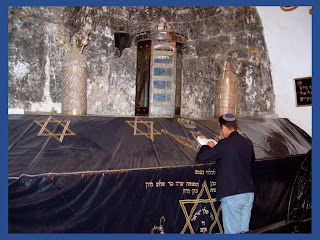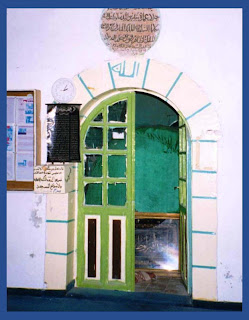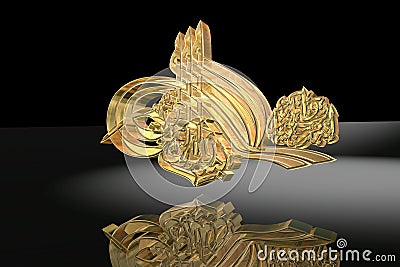Friday 26 July 2013
irshaadat e nabvi s.a.w ramzan and roza
Rozay dar ko qai a jaye:
numaz e tarawi :
Hazrat Ibn e Umer R.A. say rawyat hai farmatay hain beishak Rasool Mohammad S.A.W nay farmaya "saal kay say saal kay aiand taak ramzan kay liye jannat ko sajaya jata hai ramzan ka phela din hota hai arash kay necahy jannat kay patoon say hoor ein per say ek hawa chalti hai wo kheti hai :aie hamray rab apnay bando mein hamray aisay khwand bana jin kay sath hamari ankhain thandi hoon aur hamray sath in ki ankhein thaandi hoon(makshoota sharif :kitab ak sawam)
Wednesday 17 July 2013
the quotes of prophet to follow in daily life
the quotes of prophet s.a w
1) The Prophet Mohammad said "the deed are considered by the intentions........"[al bukhari & muslims sharif]2) A Muslims has five duties towards another muslims:to return a salutation,visit the sick,follow funerals,accept an invitation and say "Allah have mercy on you "when one sneezes.[Prophet Mohammad s.a.w quotes]
3)Prophet Mohammad s.a w said "exchange gifts as that will increase your love towards one another"[bukhari sharif]
4)The strong man is not a good wrestler"the strong man is only the one who controls himself when he is angry[Prophet Mohammad s.a.w]
5)None of you (truly) believes until he wish for his brother what he wishes for himself[Prophet Mohammad s.a.w quotes]
6)The Prophet Mohammad s.a.w said"the best of you is he who is the best to his wife.
no belivers should be angry towards his wife.if some some of her qualities are displeasing ,there will be many other qualities worth apprecation.....
7)He offers me the most darud (special prayer of the prophet)
will be nearest to me on the day of judgemeant......[Prophet Mohammad s.a.w]
Saturday 13 July 2013
Friday 12 July 2013
Wednesday 10 July 2013
Prophet,s grave

The Prophets Mohammad s.a.w grave

The Prophet Shoaib a.s grave

Foot mark of the Prophet Hazrat Adam AS in Sri Lanka first footmark on Earth.

Grave of the Prophet Dawood a.s in isreal

Grave of the Prophet Ibrahim a.s in isreal

Grave of Prophet Loot a.s in iraq

The Prophet Saleha a.s grave

Grave of Hazrat Youshe

Grave of Prophet Hazrat MOOSA In Israel

The Prophet Hazrat Haroon grave

The Prophet Hazrat Yaqoob As Grave

Hazrat Zakria a.s grave

This is the place from where the TOOFAN-E-NOOH started,
its in Musjid-e-Koofa, IRAQ |

Tomb of Moosa a.s and His Companions

The inside view of Prophet Yayha a.s grave

Hazrat YAHYA AS, its in Jama Masjid Damascus.
Tuesday 9 July 2013
obama message to muslims on ramdan ul mubarik
OBAMA’S RAMADAN MESSAGE TO MUSLIM WORLD
U.S President Barack Obama commemorated the start of the holy month of Ramadan with a message to the Muslim world.
In his message Obama wished joy, peace and understanding to the Muslims around the world.
Obama said that for the world’s 1.5 billion Muslims, the month of Ramadan is a time for thoughtful reflection, fasting and devotion.
Obama noted " Ramadan is also an opportunity for family and friends to come together and celebrate the principles that bind people of different faiths, a commitment to peace, justice, equality and compassion towards our fellow human beings. These bonds are far stronger than the differences that too often drive us apart."
Obama said further that the month of Ramadan also reminds that freedom, dignity and opportunity are the undeniable rights of all mankind.
"We reflect on these universal values at a time when many citizens across the Middle East and North Africa continue to strive for these basic rights and as millions of refugees mark Ramadan far from their homes. The United States stands with those who are working to build a world where all people can write their own future and practice their faith freely, without fear of violence,” said Obama.
Obama said " I have been honored to host an iftar dinner at the White House each of the past four years, and this year I look forward to welcoming Muslim Americans who are contributing to our country as entrepreneurs, activists and artists."
Saturday 6 July 2013
the common
quran,injiel and torah the books from sky.........

the quran,injeil(bible) and torah are called the the sky books.....which are sent god,to teach the world...
the saying allah to his creation in all ages..........
(1)Creation..............
Judaism, Christianity and Islam share the concept of an all-powerful creator God who fashions the universe and everything in it. The book of Genesis contains two creation stories that form the basis of both Christianity’s and Islam’s own creation narratives. In the first, God creates the universe over the course of six days and rests on the seventh day, which is consecrated as the Sabbath. The second story repeats some material in the first but is principally about God’s creation of humankind in the form of Adam and Eve, their life in the Garden of Eden, and their eventual expulsion for transgressing God’s commands. Christianity adapted the narrative from Genesis while asserting that Jesus had co-existed with God (as part of God) from the origin of the universe. The Qur'an contains many references to the creation story, describing God making the universe over the course of six time periods.
“In the beginning when God created the heavens and the earth, the earth was formless void and darkness covered the face of the deep, while a wind from God swept over the face of the waters. Then God said, ‘Let there be light’; and there was light.” (Genesis 1: 1-3)
“In the beginning was the Word, and the Word was with God, and the Word was God. He was in the beginning with God. All things came into being through him, and without him not one thing came into being … And the Word became flesh and lived among us, and we have seen his glory.” (John 1: 1-14)
“To Him is due the primal origin of the heavens and the earth; when He decreeth a matter, He saith to it: ‘Be’; and it is.” (Qur'an 2: 117)
(2)God.............
Judaism, Christianity and Islam have in common the notion that one God governs the world and all of creation, and is omnipotent, omniscient, and everlasting. In all three religions, God is transcendent, beyond space and time, and yet acts in history and through time. The theologies of Judaism and Islam are closer to each other than either is to Christianity; both hold God to be unified and indivisible. Most, but not all, Christians today uphold that God is a unified entity with three aspects: God the Father, God the Son (Jesus) who is both divine and human, and the Holy Spirit. In Islam, God (Arabic: Allah) is the same as the God of the Jews and Christians. Just as Christians adopted Jewish narratives and teachings for their own use, Muslims have adopted narratives and teachings from both of the monotheisms that came before it.
“Hear, O Israel: The Lord is our God, the Lord alone. You shall love the Lord your God with all your heart, and with all your soul, and with all your might.” (Deuteronomy 6: 4-5)
“There is no God but one. Indeed, even though there may be so-called gods in heaven or on earth … yet for us there is one God, the Father, from whom are all things and for whom we exist, and one Lord, Jesus Christ, through whom are all things and through whom we exist.” (1 Corinthians 4: 4-6)
“And your God is one God; there is no god but He Most Gracious, Most Merciful. Behold! In the creation of the heavens and the earth; in the alternation of the Night and the Day, in the sailing of the ships through the Ocean for the profit of mankind; in the rain which God sends down from the skies, and the life which He gives therewith to an earth that is dead; in the beasts of all kinds that He scatters through the earth; in the change of the winds, and the clouds which they trail like their slaves between the sky and the earth; here indeed are signs for a people that are wise.” (Qur'an 2: 163-164)
(3)Abraham a.s (the prophets)..........
As the symbolic ancestor of Judaism, Christianity and Islam, Abraham is so central to all three monotheisms that they are often called the “Abrahamic religions.” For the Jews, God entered into a covenant with Abraham, in which Abraham recognized God as the supreme and sole deity while God promised Abraham that his progeny would multiply and extend into countless generations. In the New Testament, Abraham is at the root of the genealogy that culminates in Jesus, who broadens the Abrahamic covenant so that it applies to all of humanity, not just the Jewish people. For Muslims, Abraham is the original monotheist. The Qur'an even calls Islam the “religion of Abraham.” According to Muslim tradition, Abraham’s son Ishmael, through his wife Hagar, becomes the ancestor of the Arabs.
“Now the Lord said to Abram, ‘Go from your country and your kindred and your father’s house to the land that I will show you. I will make of you a great nation, and I will bless you, and make your name great, so that you will be a blessing. I will bless those who bless you, and the one who curses you I will curse; and in you all the families of the earth shall be blessed.” (Genesis 12: 1-3)
“You are the descendants of the prophets and of the covenant that God gave to your ancestors, saying to Abraham, ‘And in your descendants all the families of the earth shall be blessed’.” (Acts 3: 25)
“And remember that Abraham was tried by his Lord with certain commands, which he fulfilled; He said: ‘I will make thee an Imam to the nations’.” (Qur'an 2: 124)
(4)(Mosa a.s)..........
In all three scriptures, Moses is the supreme lawgiver, the one whom God appointed to bring divine law to the Jewish people. For the Jews, Moses is the national hero who led the captive Israelites out of Egypt and on to Canaan, the land that God promised to Abraham and his descendants. The New Testament commonly depicts Jesus as consummating, and transcending, the Mosaic law, while the Qur'an discusses Moses more often than any other pre-Islamic prophet, including Abraham.
“God called out to him from the bush, ‘Moses, Moses!’ And he said, ‘Here I am.’ … [God] said further, ‘I am the God of your father, the God of Abraham, the God of Isaac, and the God of Jacob’.” (Exodus 3: 4-6)
“If you believed Moses, you would believe me, for he wrote about me.” (John 5: 46)
“We gave Moses the Book, completing Our favour to those who would do right, and explaining all things in detail, and a guide and a mercy, that they might believe in the meeting with their Lord. And this is a Book which We have revealed as a blessing: so follow it and be righteous, that ye may receive mercy.” (Qur'an 6: 154-155)
(5)Death and Resurrection...............
All three religions provide spiritual guidance for understanding death, the process of dying, and what we can expect after death. In the Hebrew Bible, the realm of the dead is called Sheol, described as a gloomy place but one over which God has ultimate control. The book of Daniel (e.g. 12:2) refers to those who will “awake, some to everlasting life, and some to shame and everlasting contempt.” Christianity and Islam further develop the idea of moral judgment that each individual will encounter after death, and the associated notions of punishment and reward. In the New Testament, the salvific power of Jesus enables each person to overcome the original sin of Adam and live eternally after death. According to the Qur'an, God will resurrect every individual on the Day of Judgment, at which point they will be evaluated based on their deeds in life.
“By the sweat of your face, you shall eat bread until you return to the ground, for out of it you were taken; you are dust, and to dust you shall return.” (Genesis 3:19)
“Praised are you, God, who resurrects the dead.” (Siddur, the Jewish prayer book)
“For as all die in Adam, so all will be made alive in Christ.” (1 Corinthians 15: 22)
“Say: ‘It is God Who gives you life, then gives you death; then He will gather you together for the Day of Judgement about which there is no doubt’: but most men do not understand. To God belongs the dominion of the heavens and the earth, and the Day that the Hour of Judgment is established.” (Qur'an 45: 26-27)
(6)Marriage.............
Judaism, Christianity and Islam have vastly different rules and traditions concerning marriage. Historically, Jews have tended to marry other Jews. Yet many Jews do not abide by the prohibitions on intermarriage at all. In Christianity, for the most part, there are less formal religious stipulations about marriage than in Judaism. As in Judaism, Christian views of marriage range across the entirety of the political and religious spectrum. Muslims tend to marry other Muslims, but marriage with members of other religions is not uncommon. Historically, Islamic law has permitted Muslim men to marry non-Muslim women, but not for Muslim women to marry non-Muslim men. The Qur'an allows for polygamy, but this has always been a rarity, since the Qur'an also stipulates that a man must provide financial support for each wife and treat them all with equal respect; in practice, polygamy has been a practice of the wealthy nobility and royalty. Despite this diversity in approaches to marriage, what Judaism, Christianity, and Islam hold in common is a belief that God created marriage as a divinely sanctioned act.
“Then the Lord God said, ‘It is not good that the Adam should be alone; I will make him a helper as his partner.” (Genesis 2: 15)
“Some Pharisees came to [Jesus] and to test him they asked, ‘Is it lawful for a man to divorce his wife for any cause’? He answered, ‘Have you not read that the one who made them at the beginning ‘made them male and female’, and said, ‘For this reason a man shall leave his father and mother and be joined to his wife, and the two shall become one flesh’? So they are no longer two, but one flesh. Therefore what God has joined together, let no one separate’.” (Matthew 19: 3-6)
“And among His Signs is this, that He created for you mates from among yourselves, that ye may dwell in tranquility with them, and He has put love and mercy between your hearts.” (Qur'an 30: 21)
(7)Paradise and Eschatology...................
Judaism, Christianity and Islam each have a notion of “heaven” or “paradise,” variously connoting God’s dwelling-place in the skies, the place where the righteous go after death, or a just, utopian society that will exist on the earth at the end of history. Judaism has traditionally believed that a messiah will arrive to usher in an era of peace on the earth, who will reign in the line of King David and vanquish all evil. Christians hold an immense diversity of views on the paradise and the end of history, but typically believe that Jesus will return to the earth to act as a judge over all humankind. Muslims also commonly believe that Jesus will return to the earth before the end of time alongside a figure called the Mahdi, the “rightly guided one,” although this word does not occur in the Qur'an. Like Judaism and Christianity, Islam shares a vision of paradise for those who act righteously as a perfect place, without strife or suffering. The Qur'anic verse excerpted here describes paradise as a place of boundless food, the purest water and the cessation of want, describing paradise in a series of images punctuated by the rhetorical refrain, “Which is it, of the favours of your Lord, that ye deny?” The implication here is: why would you deny any of these things?
"Lo, I will send the prophet Elijah to you before the coming of the awesome, fearful day of the Lord. He shall reconcile fathers with sons and sons with their fathers." (Malachi 3:23)
"Rabbi Pinhas ben Yair said, Zealousness leads to cleanliness (of heart), and cleanliness leads to purity. Purity leads to humility, and humility leads to fear of sin. Fear of sin leads to piety and piety leads to the Holy Spirit. The Holy Spirit leads to resurrection of the dead, and the resurrection of the dead comes at the hands of Elijah, may he be remembered for good." (Mishnah Sotah 9:15)
“Then the angel showed me the river of the water of life, bright as crystal, flowing from the throne of God and of the Lamb through the middle of the street of the city. On either side of the river is the tree of life with its twelve kinds of fruit, producing its fruit each month; and the leaves of the tree are for the healing of the nations. Nothing accursed will be found there any more. But the throne of God and of the Lamb will be in it, and his servants will worship him; they will see his face, and his name will be on their foreheads. And there will be no more night; they need no light of lamp or sun, for the Lord God will be their light, and they will reign forever and ever.” (Revelations 22: 1-5)
“But for him who feareth the standing before his Lord there are two gardens. Which is it, of the favours of your Lord, that ye deny? Of spreading branches. Which is it, of the favours of your Lord, that ye deny? Wherein are two fountains flowing. Which is it, of the favours of your Lord, that ye deny? Wherein is every kind of fruit in pairs. Which is it, of the favours of your Lord, that ye deny? Reclining upon couches lined with silk brocade, the fruit of both the gardens near to hand. Which is it, of the favours of your Lord, that ye deny? Therein are those of modest gaze, whom neither man nor jinni will have touched before them. Which is it, of the favours of your Lord, that ye deny? In beauty like the jacynth and the coral-stone. Which is it, of the favours of your Lord, that ye deny? Is the reward of goodness aught save goodness? Which is it, of the favours of your Lord, that ye deny?” (Qur'an 55: 46-61)
(8)War and Peace............
In the ancient world out of which Judaism, Christianity and Islam emerged, war was an everyday fact of life, though something to be avoided when possible. The rules that characterize modern warfare between states did not yet exist, nor did the capacity for mass casualties. All three scriptures contain passages that encourage followers to make war against their enemies, and others that advocate peace and forgiveness. Likewise, the legal traditions of Judaism, Christianity and Islam have, with varying degrees of specificity, rules about the conduct of a “just war.” Still, all three also look forward to an era when social justice will be established on the earth and war will no longer be necessary.
“He shall judge between the nations, and shall arbitrate for many peoples; they shall beat their swords into ploughshares, and their spears into pruning hooks; nation shall not lift up sword against nation, neither shall they learn war any more.” (Isaiah 2: 4)
“Do not repay evil for evil, but take thought for what is noble in the sight of all. If it is possible, so far as it depends on you, live peaceably with all. Beloved, never avenge yourselves, but leave room for the wrath of God; for it is written, ‘Vengeance is mine, I will repay, says the Lord’. No, ‘if your enemies are hungry, feed them; if they are thirsty, give them something to drink; for by doing this you will heap burning coals on their heads’. Do not be overcome by evil, but overcome evil with good.” (Romans 12: 17-21)
“Those who avoid the greater crimes and shameful deeds, and, when they are angry even then forgive; Those who harken to their Lord, and establish regular prayer; who conduct their affairs by mutual Consultation; who spend out of what We bestow on them for Sustenance; And those who, when an oppressive wrong is inflicted on them, are not cowed but help and defend themselves. The recompense for an injury is an injury equal thereto in degree: but if a person forgives and makes reconciliation, his reward is due, from God … But indeed if any show patience and forgive, that would truly be an exercise of courageous will and resolution in the conduct of affairs.” (Qur'an 42: 37-43)
(9)The status of women and women’s rights.............
Judaism, Christianity and Islam all originated in patriarchal environments, dominated by men politically, economically, and socially. All three scriptures are full of verses that have proven to be vexing for feminists and modern women’s rights advocates. In parts of the Hebrew Bible and the New Testament, women are perceived as a source of evil and social strife. Women are expected to submit themselves to their husbands’ authority. Likewise the Qur'an allows men a great deal of control over their wives.
However, all three scriptures share a sense of men and women being created equal in the sight of God, even if women rarely achieved true equality with men in their daily lives. In the New Testament, women take on positions of authority within the early church, at the same time that it calls on them to veil themselves in church and remain silent. The Qur'an accords rights to women regarding such matters as inheritance and divorce that were truly revolutionary in its own historical context, at the same time that it calls on them to be modest and avert their eyes from males in their midst. The verses selected here suggest an equality between men and women that exists in theory, though if only rarely in actual practice.
“So God created humankind in God’s image, in the image of God he created them; male and female God created them.” (Genesis 1: 27)
“For in Christ Jesus you are all children of God through faith. As many of you as were baptized into Christ have clothed yourselves with Christ. There is no longer Jew or Greek, there is no longer slave or free, there is no longer male or female; for all of you are one in Christ Jesus.” (Galatians 3: 26-28)
“Lo! men who surrender unto God, and women who surrender, and men who believe and women who believe, and men who obey and women who obey, and men who speak the truth and women who speak the truth, and men who persevere (in righteousness) and women who persevere, and men who are humble and women who are humble, and men who give alms and women who give alms, and men who fast and women who fast, and men who guard their modesty and women who guard (their modesty), and men who remember God much and women who remember - God hath prepared for them forgiveness and a vast reward.” (Qur'an 33: 35)
Subscribe to:
Posts (Atom)




















